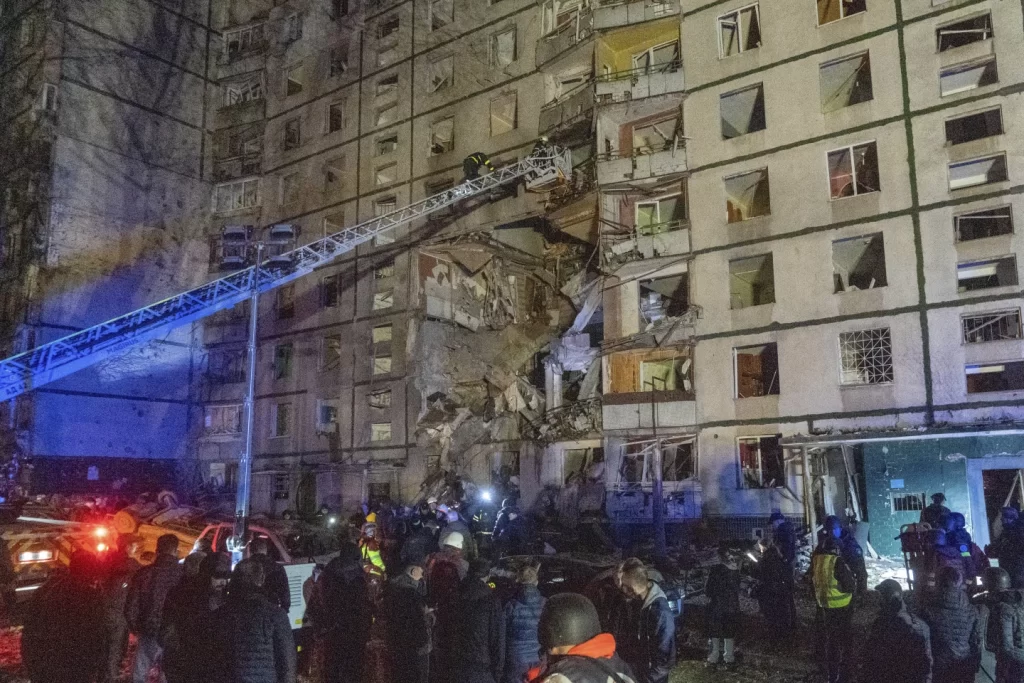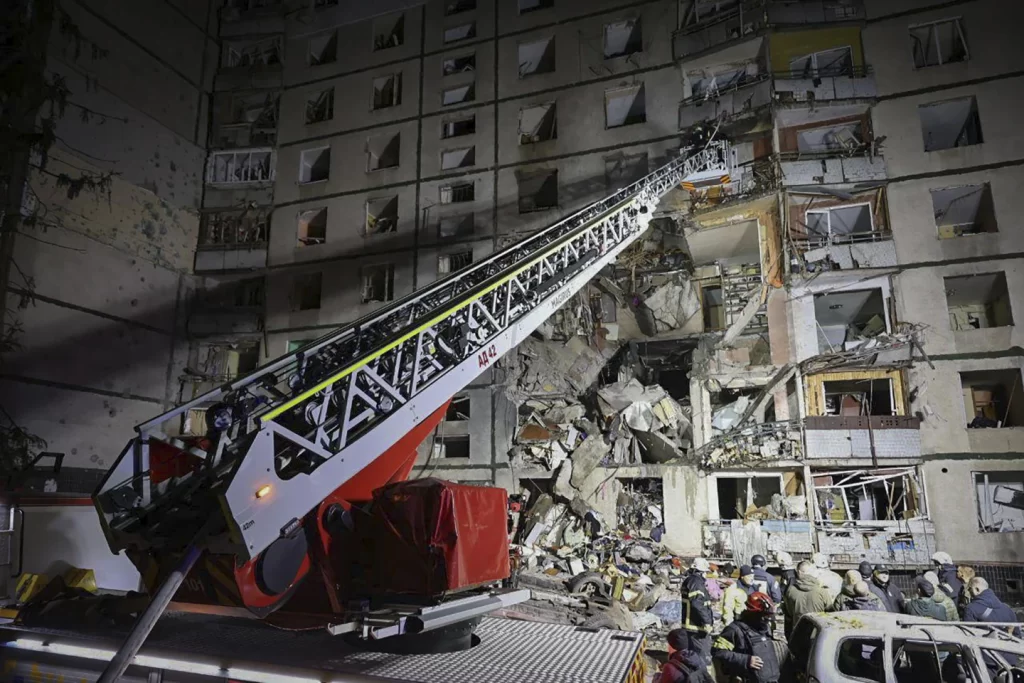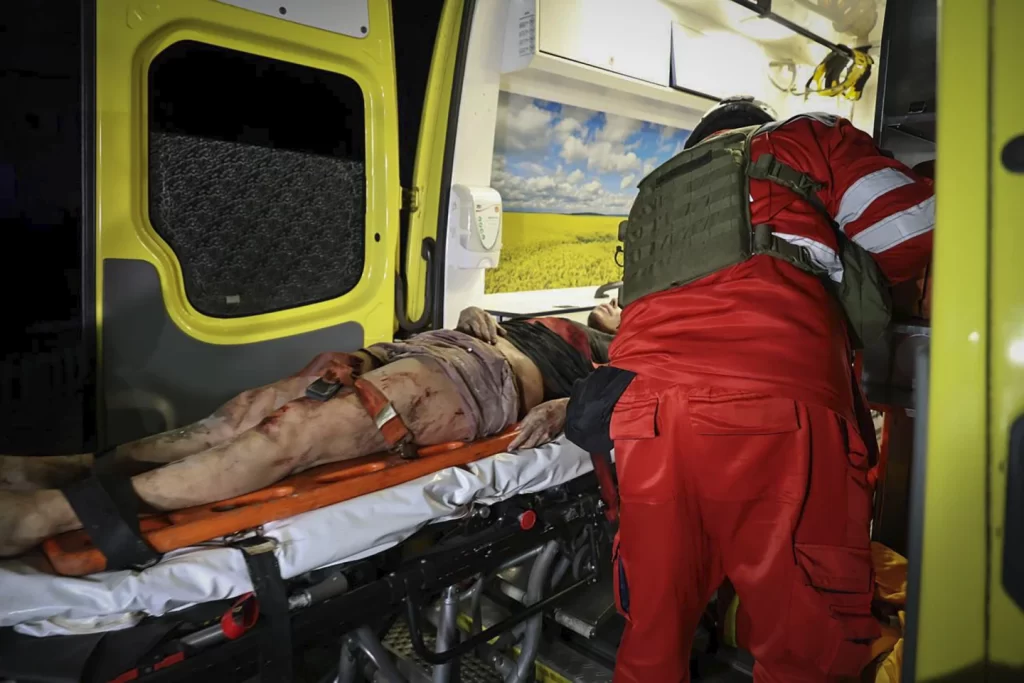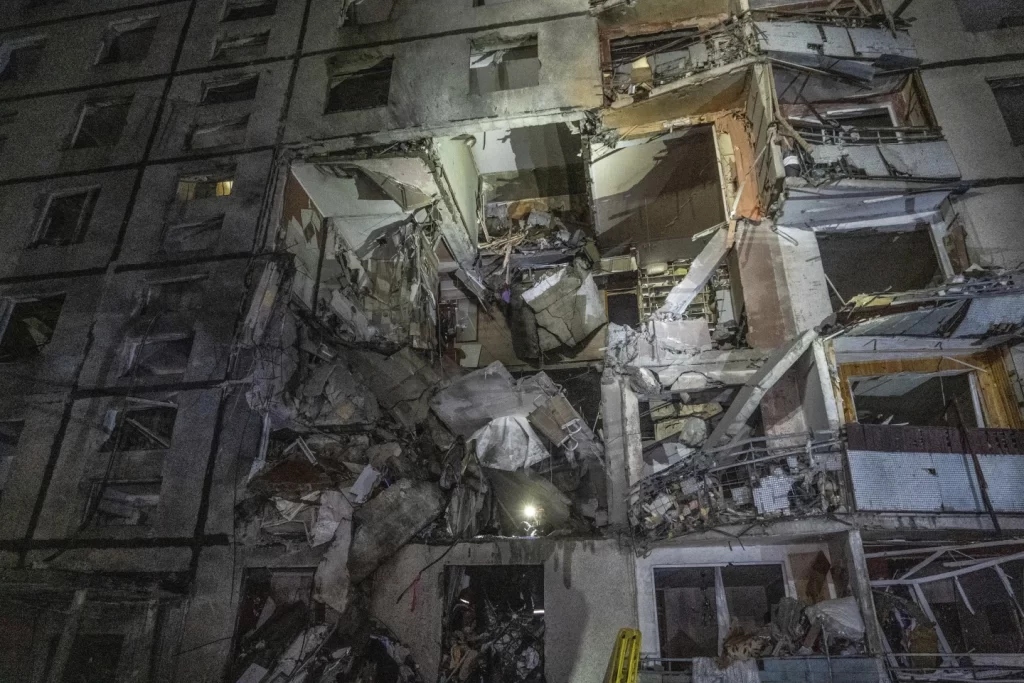Russian forces struck a residential building in Ukraine’s second-largest city of Kharkiv on Thursday, killing three people, including two teenage boys, and injuring scores of others, as they continued their grinding onslaught in the country’s east.

Regional head Oleh Syniehubov said one of the boys, aged 12, was fatally injured when the building was hit by a Russian 500-kilogram (1,100-pound) glide bomb. “He was freed from under the rubble with severe head injuries and fractures,” Syniehubov wrote on social media. “Doctors performed resuscitation measures for more than half an hour. Unfortunately, it was not possible to save the child.”
Syniehubov later said rescuers also retrieved the bodies of a 15-year-old boy and an unidentified man from the debris. Interior Minister Ihor Klymenko stated that at least 35 people were injured in the attack, with others potentially still trapped under the rubble.

Russia has increasingly turned to powerful glide bombs to pummel Ukrainian positions along the 1,000-kilometer (600-mile) line of contact and strike cities dozens of kilometers (miles) from the front line. Kharkiv, a city of 1.1 million, is about 30 kilometers (less than 20 miles) from the border.
President Volodymyr Zelenskyy has repeatedly urged the United States to allow Ukraine to use long-range American missiles to strike air bases deeper in Russia that are used by warplanes carrying such glide bombs. Washington has so far only allowed some strikes close to the border.

Zelenskyy reiterated his request on Thursday, publishing a video showing the ravaged nine-story building, with at least three of its floors destroyed and the rest seriously damaged. “Partners see what is happening every day,” Zelenskyy wrote on Telegram. “And under these conditions, each of their delayed decisions means at least dozens, if not hundreds of such Russian bombs against Ukraine. Their decisions are the lives of our people.”
The devastating attack in Kharkiv comes as Russia continues to launch missile and drone strikes across Ukraine, hitting critical infrastructure and civilian areas. The relentless onslaught has prompted renewed calls from Ukraine for its allies to provide more advanced weapons to help defend against the Russian bombardment.

The human toll of this conflict continues to mount, with the attack in Kharkiv serving as a tragic reminder of the devastation wrought by Russia’s invasion. As the war grinds on, the pressure on Ukraine’s partners to step up their military aid will only intensify in the face of such senseless loss of life.



